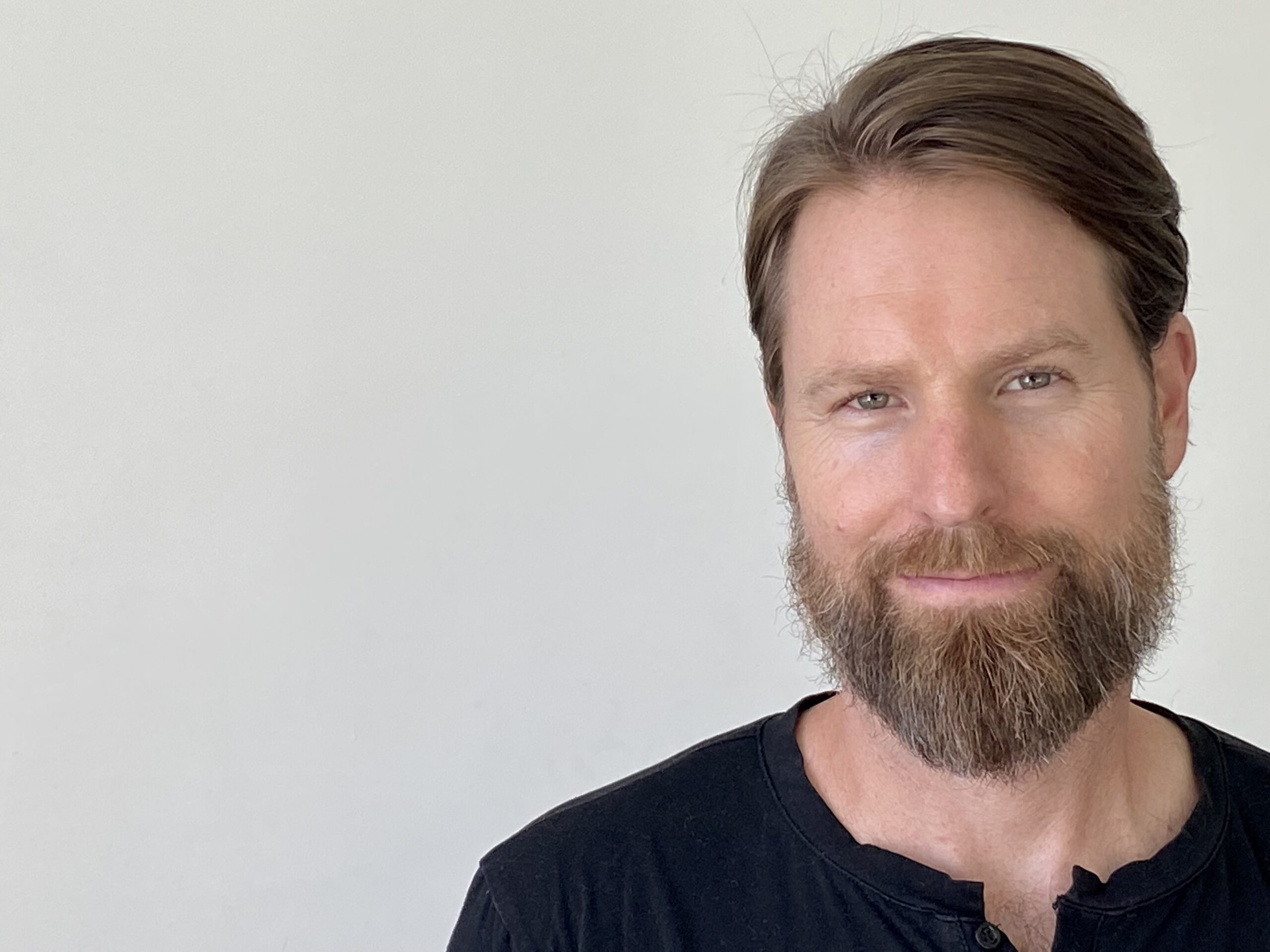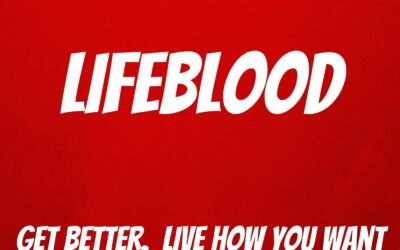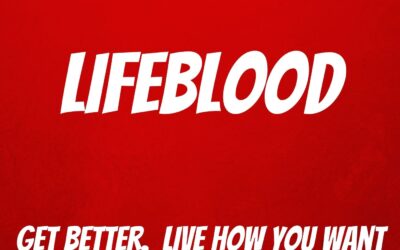Know Your Numbers with Jack Tompkins
How well do you know your numbers and track your activity? Jack Tompkins talks about the power of doing it and how to make it happen!
Listen to us On
About the Episode
LifeBlood: We talked about why you ought to know your numbers, why you don’t need to be a numbers person to benefit from doing it, the true value in knowing your data, and how to make it happen with Jack Tompkins, Owner of Pineapple Consulting Firm, an org helping analyze and visualize your data.
Listen to learn why giving your data a seat at the table could propel your business forward!
You can learn more about Jack at PineappleCF.com, YouTube and LinkedIn.
Thanks, as always for listening! If you got some value and enjoyed the show, please leave us a review wherever you listen and subscribe as well.
You can learn more about us at LifeBlood.Live, Twitter, LinkedIn, Instagram, YouTube and Facebook or you’d like to be a guest on the show, contact us at [email protected].

George Grombacher
Lifeblood Host

Jack Tompkins
Guest
Episode Transcript
Come on home leopard, this is George G. And the time is right welcome today’s guests a strong and powerful Jack Tompkins. Jack, are you ready to do this?
Jack Tompkins 0:19
I’m ready, George, let’s do it.
george grombacher 0:20
Let’s Let’s go. Jack is the owner of pineapple consulting firm. They’re an organization helping analyze and visualize your data in interactive dashboards. So you get all the insights that you need from the data without having to actually touch it. Jack, tell us a little about your personal life, some more about your work and why you do what you do.
Jack Tompkins 0:39
Sure. So thanks for having me on, George, really looking forward to this conversation. A little bit about my personal life, I guess I’m originally from Connecticut, which we were just talking about, we’re very proud of our pizza there. And that’s one of the bright spots of Connecticut, but I moved down to Charlotte, North Carolina, because it’s, there’s a whole lot more going on down here. But born and raised, went to school and worked in Connecticut and all that fun stuff. And I guess tailoring that to why I do what I do the whole data for small businesses thing. I always like math class growing up, that was always my favorite class that boggled my mind that it was nobody else’s favorite class. For some reason, I don’t know. And there was one week where my teacher was out. And there’s a sub in and you know, nobody really got the homework. So I just got up and kind of started teaching the class and I really liked being able to help other people at that time, other kids understand math, get the value out of it, and stuff like that. So I have transferred that little teacher in me to this whole small business data and dashboards and making sense out of the numbers for entrepreneurs. And it’s, it’s given me satisfaction throughout life. And it’s been really, really fun being an entrepreneur doing that same exact kind of thing.
george grombacher 1:56
Amazing. I’m just trying to try to think back what subject I would have been confident enough and to actually stand up and walk to the front and start teaching, and I’m gonna have to circle back on that line. I think that’s incredible. So was it just like, Okay, this is obviously what I’m going to do now is get up and start teaching the class
Jack Tompkins 2:19
was we had to sub in and like, you know, she was ready to put on a movie and math class kind of thing. And like, not her fault. She wasn’t a math person. And we’re just doing homework. And I was, you know, just going through it. And people knew that I liked it. They just asked me like, like how to do this, and you do this. And it got to the point where the people on the other side of the room were asking me, I was like, Alright, let me just do this on the board.
george grombacher 2:40
Perfect. Love it worked out. So take us through through through your career, because I know that that you worked for your portfolio manager with the Hartford for a while, but walk us through your entrepreneurial journey.
Jack Tompkins 2:54
Sure, yes, I My Portfolio Manager stuff was managing personal finances actually, for myself, my family, at the Hartford, for those who may not know, it’s an insurance company, obviously, based out of Connecticut. And I was in a leadership development program there really liked the work, the people, everything they gave me, objectively, probably way too much responsibility for a 22 year old right at the college. But I had a whole lot of fun, learned a lot of good skills. And I really liked the analytics piece of it, of course. So from that I’ve always had kind of the entrepreneurial spirit. So I figured, all right, I really like this analytical stuff. I know I can do it. And I can do it, you know, pretty well, for the corporate world. I bet small businesses need the same kind of thing, but don’t have access to it. So I put some feelers out, got really good feedback, and went full time, April of 2020, into what is now pineapple consulting firm, helping small businesses become data driven.
george grombacher 4:02
Nice. So how is how is the shift? So a couple things, I am not the math person. So I would have been the one asking you questions, we’ll probably try and probably just try and look at your paper if we’re totally honest. And I’ve been more the an I don’t want to refer to you as as an analytical person or an introvert by any stretch of the imagination. But I think that and you tell me where I’m missing here. A lot of entrepreneurs are probably not the math data driven analytical people. And so now you are both because you’re an entrepreneur and and your, your, your that tell me about the problem that you saw. Is it and am I close to the mark?
Jack Tompkins 4:45
Yeah, it’s um, so the problem I saw is not having access to the value within their data. So I’ll elaborate more on that. So a lot a bunch of errors to your point, George. They are They got into it because they love making their little widgets or selling their service. They’re not experts in running a business. And I am no expert in running a business either. Numbers are my thing, though. And to your point a lot of other people aren’t. So while they aren’t experts in the numbers and getting the data and all that stuff, they know that there’s value in it, they just don’t know how to get it, or they don’t have the time for it is the more common situation. So the problem that I saw was, a lot of people that know alright, I, you know, even Shark Tank tells me, I got to know my numbers and stuff. Most people probably know, like, their revenue and profit offhand. But what about your conversions for marketing? Where’s each of those conversions coming from? What’s your ROI under different marketing? What’s the breakdown in your revenue? And how is that trending? So all that stuff, it’s, it’s things that entrepreneurs think about and are aware of, they just don’t have access to at least not easy access to. So that was kind of a big thing that I saw. And through building dashboards and providing analysis, the entrepreneurs that I’m able to help they get the full access to it, they say, I want to know this, that and XYZ, whatever. And then then you can actually see it, it’s just Alright, I’m gonna pull up my dashboard. Five minutes, boom, done, I know exactly what’s going on my business. That’s not something that a lot of folks are offering, at least not that I found. So it’s been a really, really cool niche for me to kind of slide into.
george grombacher 6:29
Yeah, yeah, I could definitely see that. I think that that every small business owner would like to be able to wake up in the morning, and at some stage, they’re probably immediately but at some stage in the morning to be able to open up their dashboard, say this is my company, this is everything that’s going on. But yeah, like, how do I even go about that? I have no idea. So are there what walk me through sort of those kind of the key metrics that people would like to see or that you find they’d like to see and sort of just what what, what normally goes into that dashboard?
Jack Tompkins 7:02
Sure. So there’s, there’s a few categories, I like to spike get out into one that is the most common is financial. So it is revenue and profit, definitely a great place to start. If you’re just starting out. If you want to go deeper, you get into some of the different margin things where your expenses are kind of shaking out. And, you know, as are you going to too many networking events and spending too much money. And then how is that a whole expense situation? Look, and how does it impact your bottom line? So really nothing crazy, right? It’s stuff that you think about, just being able to access it really quickly is huge. The second area is marketing. So like kind of like I mentioned, I focus on conversions, because conversions paid the bills leads don’t. Although, obviously, it’s important to track both. If you’re just starting again, I would recommend start with conversions. Maybe level two or more advanced, or whatever you want to call it, is tracking that ROI. So the return on investment of your different marketing avenues. So are the Facebook ads working better than the Google ads is one networking group working better than another is your SEO, working, stuff like that really helps kind of guide your time and your efforts and your money for marketing. And then the last one is the group that I like to call operational data. So in that think like time tracking, especially if you’re a service based business, where you don’t really have inventory, you have time. So your hourly rate by client? Where are you spending your time? And what’s your sales cycle look like? That’s a big one. So a lot of a lot of fun things in the operational that gets very customized very quickly, depending on the business.
george grombacher 8:47
Yeah, that certainly makes sense. Fascinating. I think that yeah, probably people are well aware of how much revenue they have coming in, maybe not so much the profit piece. But if if we are marketing and have lots of different ways that leads are coming in, do we really know what should I be, you know, spending less time on what should I be spending more time on and then tracking my time. Which one of those, if any, are people the most reticent to actually dive into
Jack Tompkins 9:21
the time tracking? Because it’s honestly it’s kind of annoying to finish an activity and then log your time or carve some time out at the end of the day and lag at all. That is one that has to be unfortunately, largely manual data entry. And nobody wants to I don’t even want to do that. So I totally understand it. The benefits far outweigh the costs. But it is one of those annoying things. All right. I got to do this now and it you know, it takes five seconds, but you know it it definitely feels pretty annoying.
george grombacher 9:55
Yeah, yeah, I think that there’s a lot just the actual doing it’s probably annoying. There’s probably some psychological stuff of not wanting to be really honest with myself about how I’m spending my time. You know, right? Do you think that that’s something that we need to do forever, or, or maybe just sort of rip the band aid off and get down to how I’m actually spending my time. And so I know,
Jack Tompkins 10:20
know, right knowing is half the battle. So it’s get a good baseline of it. And if you end up just kind of cruising, maybe you don’t have to do it forever. But if you’re growing and scaling, you want to see how your employees are spending their time not to like check on them and micromanage or anything, it’s just, if they’re completing a task that you thought would take 10 hours, and they’re only doing it three, that’s awesome. Give them some more challenging stuff, or promote them, you know, whatever. So it’s, there is value in it to keep going. But like I said, if you’re kind of in, maybe more like a lifestyle business, and you’re kind of coasting, it might not be number one. But definitely worth having a general sense of I would say,
george grombacher 11:01
you could tell me, No, you’re wrong, you need to track it for forever. Now, this is super key. And I was just thinking about, you know, just just just one person, but 1,000%. If you have, you know, if you have a team or you’re wanting to grow the knowing how your people are spending their time not to micromanage to your point, but just to know, I got it. So is it ever too early? Is it ever too late to start putting these systems in place?
Jack Tompkins 11:31
The best time was when you started your business, the second best time is today, right? So it’s never too late. It’s probably never too early, I guess, either. But yeah, start I like to say just start with something easy. If you just want to like what time tracking is that example, if you just want to track your billable hours, great, start there, because that’s actually kind of fun, because you get to hit the little dollar sign know that you’re gonna get paid from that hour that you just worked. Same thing for all the other metrics, though, if you want to start with something easy, start with revenue, you know, you probably know it, but put into a little dashboard or a little graph or something, marketing, start with conversions, and then kind of let the snowball take effect from there. And, and your your questions we will guide you have great, I got six conversions. Where’d they come from? Well, how does that compare? And, you know, it kind of starts the thought process. So never too late to start. Start with something easy.
george grombacher 12:24
Yeah, I appreciate that. So walk me through a typical engagement that you have, how do people how to, you know, how do they? How do you put it all together? How does it work?
Jack Tompkins 12:37
Totally fair question. A lot of folks come in and they want to see something they want to see. I’ll just use the same basic examples. They want to see their revenue in a dashboard tied with their marketing conversions and their hourly rate, my client said, Okay, that’s what I want to see. How the heck do we do that Jack. So we kind of talked about where the data comes from. The if you want to get started on your own, this is kind of the blueprint to follow to but talk about where the data comes from. Step two is actually getting it into something that is easily updatable. So if it’s automated, fantastic, obviously, best case scenario. If it’s something as simple as downloading a CSV, which pretty much any software that you’re using is going to allow you to do that. Great, dump it into a little template sheet in Excel. That is the annoying part, objectively. So if you do try this on your own, I fully encourage it for one, and two, that is the part that is annoying. And then three is actually making it visual. Because nobody wants to look at a boring black and white CSV file, or anything that looks remotely like that. Put it into charts and graphs, there are some indicators out there of you know, this week compared to last week, month over month, year, over year, etc. And that’s kind of the fun part. So that’s how the engagement goes. We kind of talk through really just the goal. And then I say, Okay, I’ll need access to the data or whatever, we’ll build it like this. And then, depending on the project, sometimes it turns into, hey, we want a whole bunch more information. We want more ongoing analytics and stuff like that. So it becomes a long term thing. It’s sometimes they just stop at a project. And that is totally fine, too. I’m happy to help wherever I can.
george grombacher 14:25
Yeah, I appreciate that. And so the final result is hopefully, it’s just people are it’s a streamlined process. So it is automated. Is it possible to fully automate everything or is there’s the time management stuff you’re going to need to manually input but the rest of it?
Jack Tompkins 14:46
Yeah, the rest of it, you can get depending on slight caveat. Depending on where all the data is coming from, you could get really close to fully automated with most data sources, I would say I can plenty of caveats in there. But there is definitely that use case.
george grombacher 15:05
And we’re at a point with technology that that everything is syncing up. I imagine it’s online if I want it to be.
Jack Tompkins 15:11
Exactly, yep, that’s exactly right.
george grombacher 15:13
Okay, perfect. And roughly speaking, how how, I guess the sky’s the limit. But what is a typical engagement? Like? How long does it take when somebody says, Yeah, I want to do this, to the point where we have a functioning dashboard,
Jack Tompkins 15:27
about four to six weeks on average. And a lot of that time is really just like the back and forth of, hey, how does this look? Oh, that looks great. Let’s also do this and kind of, not not changing the scope of work or anything like that, but just kind of the back and forth. So it meets their expectations, and hopefully exceeds it. But it’s but it’s exactly what they want is obviously the goal, or else we’re probably not going to use it. So that’s the time that are the big piece of time in there.
george grombacher 15:57
Yeah. And I imagine that once people start seeing things, then it says, okay, you know, it’d be cool to be able to see this as well. And then the really scope of what they want the dashboard, the information to track probably grows and grows and grows.
Jack Tompkins 16:09
And that’s exactly right. That’s exactly right. Yep.
george grombacher 16:13
So, yeah, I mean, I, I appreciate I’ve worked at, I’ve worked with two really big insurance companies over the course of my career. years ago, at this point, one had these amazing systems and these amazing dashboards, like it was incredible, and the other didn’t really have them at all. And I was shocked that these companies are almost mirror images of each other from the outside, but that they were so different. And so I can certainly attest to the value of being able to pop open a dashboard and to see, you know, just just the health of your business and wherever things going. And I imagine that that’s feedback that you get all the time.
Jack Tompkins 16:53
It totally is. It’s so funny that you bring that up, too, because I’ve, I’ve worked with a few fortune 500 companies, and do all the entrepreneurs listening, if you’re thinking, Oh, crap, I don’t have data in place. I don’t have a dashboard. Some fortune 500 companies don’t either. Like to point towards there’s the one insurance company that had a great the other one that didn’t. There are plenty of companies that are still figuring it out. So back to overtime. earlier. It’s never too late to start.
george grombacher 17:17
Yeah, wild. Love it. Well, Jack, people are ready for that difference making tip, what do you have for them.
Jack Tompkins 17:23
So my difference making tip is give data a seat at the table. It doesn’t have to run your business. It doesn’t have to guide your day to day. Just hear what it has to say. And I guarantee that you will learn something about your business by looking into the numbers. I like to say you can be completely right with your gut instinct and I have no problems at all. You can be completely right with your gut instinct. You can be completely profitable without with data though to
george grombacher 17:53
what that is great stuff that definitely gets come. Jack, thank you so much for coming on. Where can people learn more about you? How can they engage with you and pineapple consulting.
Jack Tompkins 18:03
Thanks so much for having me on. George has been a pleasure. More about me. Pineapple cf.com is my website, short for pineapple consulting firm.com. You can find me on LinkedIn to I’m always on there, but plenty of examples, visuals, interactive stuff on my dashboard, or on my website about dashboards and other sort of analytics too. So always happy to talk shop. Excellent.
george grombacher 18:27
Well, if you enjoyed this as much as I did, so check your appreciation and share today’s show with a friend who also appreciates good ideas, go to pineapple cf.com and check out the resources and everything that Jack’s working on. Find him on LinkedIn as well list both of those in all all the places in the notes of the show. Thanks again, Jack. Thanks, George. And until next time, keep fighting the good fight. We’re all in this together.
Transcribed by https://otter.ai
More Episodes
Understanding Trusts with Amanda Peck
Understanding Trusts with Amanda Peck Think trusts and estate planning fare just for the ultra wealthy? Amanda Peck talks about why that's not the case, and how ordinary folks can easily access and benefit from using them! About the EpisodeLifeBlood: We talked about...
Real Estate Syndication with Spencer Hilligoss
Real Estate Syndication with Spencer Hilligoss Interested in investing in real estate, but want something more passive than rentals or fix and flips? Spencer Hilligoss talks about the opportunities with real estate syndication, how it works and the benefits of...
Work-Life Balance with Vito Grammatico
Work-Life Balance with Vito Grammatico As a high performer, have you ever thought about why you feel burned out from time to time and what can be done about it? Vito Grammatico shares his expertise into why it happens, and some simple tools to start alleviating those...
Teaching Kids About Money with Dean Brauer
Teaching Kids About Money with Dean Brauer You've been giving your kids a cash allowance, but now it's time to transition to digital but haven't figured out how to do it? Dean Brauer talks about a platform he's developed to make that happen plus teach kids important...
Life Insurance Settlements with Jamie Mendelsohn
Life Insurance Settlements with Jamie Mendelsohn Got an old life insurance policy you're thinking of getting rid of because it's no longer necessary? Jamie Mendelsohn talks about how it could be more valuable than you think and shares her expertise into how to...
Startup Stages with Alon Braun
Startup Stages with Alon Braun Have an idea but struggling to bring together all the resources to make it a reality? Alon Braun shares his entrepreneurial framework for making it happen!About the EpisodeLifeBlood ENGAGE: We talked about the startup stages business go...
Health for Life with Meghann Hempel
Health for Life with Meghann Hempel Being overweight is a struggle that many of us fight our entire lives. Meghann Hempel has fought through a ton of adversity, she shares her story of resilience as well as an actionable process that you can take and apply in your...
Making Better Meat with Paul Shapiro
Making Better Meat with Paul Shapiro The methods through which we're currently producing meat are harmful and not sustainable. Paul Shapiro has devoted his life to developing new and innovative ways to address the problem, and produce a new and better meat!About the...
Improve Your Love Life with Erwan and Alicia Davon
Improve Your Love Life with Erwan and Alicia Davon We talked about how everyone is drawn to fun and how it’s imperative to incorporate that into our lives. How the pandemic has changed relationships for better and for worse. The advantages of working on yourself as...
Join the show.
Interested in being on the show? Tell me a little bit more about you and what you’d like to talk about!









